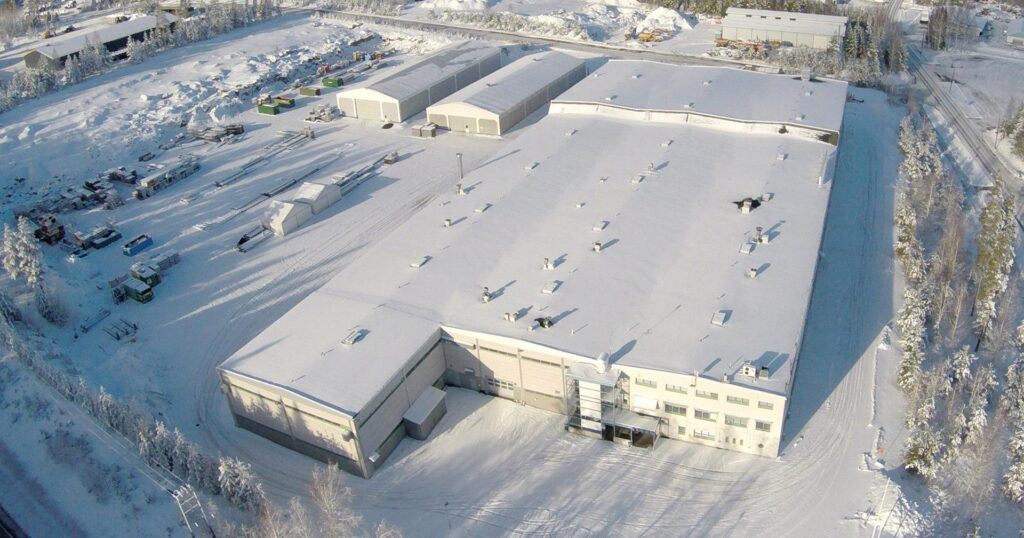Increased reporting obligations in the energy industry take a remarkable portion of productive working hours. The production of various reports may take even several working days in a month. Kuopion Energia has turned the challenge of increasingly demanding regulatory requirements into an opportunity to comprehensively develop their business and automate reporting to cover the whole corporate group.
“We have used the Once fuel information system provided by Pinja for almost 20 years and our contractors and partners also use it”, says operation manager Samuli Räisänen from Kuopion Energia’s energy production department. “Now, we are going to expand the Once system from the production environment to cover the energy reporting needs of the whole group. In the future, one system can provide information about our total production and matters related to the district heating network, as well as produce corporate-level financial reports, for example. We are currently at the pilot stage and the system will be put to practical use at the turn of the year.”
Automation brings cost benefits and reduces registration errors

To export data to a system and import various summary reports without errors and delays is invaluable. At Kuopion Energia, almost two million cubic metres of fuel are registered in the Once system during the best years. This translates to more than twenty thousand full trailer trucks or, in monetary terms, a total value of 30 million euros.
“As our equipment base has increased, the relevance of Once has grown so much that we wanted to assign the server maintenance to Pinja. Pinja takes care of it via a remote connection ensuring that our hardware is updated and renewed at regular intervals”, explains operational economy engineer Hanna Kellokumpu, who is responsible for Once projects.
“The possibility of errors has also reduced thanks to automatic data transfers”, says Mr. Räisänen and continues: “The amount of errors would be much higher, if we still handled data in Excel. Frankly speaking, even taking all the necessary samples from fuel loads would be quite a challenge – we would probably not be able to perform this with the present staff considering that the number of suppliers has increased to about 15–20 from the previous 4–5 suppliers. Previously, we had to manually combine the sample data obtained from different systems.”
In recent years, Kuopion Energia has utilised the Once system in the management of data, such as stock, energy analyses and moistures, related to all fuel deliveries.
Mr. Räisänen describes the benefits of the system as follows: “Once has enabled the communication of analytical balances, calorimeters and other similar systems. Since data is transferred electronically, the number of processing and registration errors has decreased. Our aim is to keep all lists updated, and suppliers or drivers do not enter any data manually. The terminals have easy-to-use touch and tap displays, which offer today an easier operating environment even for an occasional user. For example, peat production reports are directly created in the system, which means that we know at all times how much our contractors have harvested peat or the amount of temporary storage in peatlands. And we also have a fuel terminal”.
According to Mr. Räisänen, weather forecasts that can be entered in the Once system also bring cost benefits:
“We deliver a tailored order every day. The system checks our delivery contracts and uniformly distributes orders each day. When we see that the weather gets colder or warmer, we can insert pluses and minuses in the loads. Once improves the delivery reliability in energy production. It helps us ensure that we get a correct quantity of fuel at all times, which is bound to decrease the upward pressure on end product prices”.
Systems communicate with each other and problems can be addressed 24/7
Around the turn of the year, energy reporting of the whole corporate group will take place in the Once fuel data management system, which is capable of interfacing with the ERP system. In addition to the energy production and information management units, the district heating department, financial administration and the electricity sales department are involved with the project for expanded reporting.
“To carry out energy reporting in the fuel data information system is smart – and it is also smart that fuel data can in future be utilised in a larger scale in financial administration as well. All data that can be obtained from the field will be reliably entered in the Once system. Surprisingly often, we have encountered suppliers who lack skills in this area, which means that much of the configuration work is left to be done by the buyer. However, the cooperation with Pinja has been easy. In many occasions, we have described what we want and they have proposed a viable solution. It is evident that they are familiar with the energy sector”, says Ms. Kellokumpu appraisingly.
Among the personnel of Kuopion Energia, approximately 50 employees will use the Once system after the renewal. When including the fuel suppliers and their drivers, the total number of users exceeds a hundred. User training is organised for new drivers every year, even though, according to Ms. Kellokumpu, drivers have found the Once system easy to use.
“The equipment related to the Once system is located in the area of energy production. All software is secured by Pinja’s 24/7 support and automatic backup, which means that the environments will be more fault tolerant in the future. The maintenance is more straight-forward and we can address any problems faster than before”, Ms. Kellokumpu explains.
“Our main task is not to enter data and create reports – these actions should be automatic”
“Legal requirements have become much stricter. It is no longer enough to know the quantity of fuel for which a supplier charges, but today regulatory authorities also require a report of greenhouse gases, for example. The number of authorities demanding reports is quite high. Since this is a developing environment, Pinja’s people have been very active in inquiring about our future prospects and enthusiastic about developing the services further according to the customers’ reporting needs. Pinja has also shown remarkable development as a company. They now have sufficient resources and they are very dependable”, Räisänen says thankfully.
With the Once system, Kuopion Energia aims to at least halve the time required for report production.
“So far, data collection from our different businesses, report production and data processing for regulatory and administrative purposes, for example, have taken several man days in a month. Our accessory systems also need upgrading; however, we strongly believe that together we will be able to automate the data collection chain and reporting to reach the desired shape. It is not sensible that each unit has a reporting system of their own. In other words, it is not reasonable to decentralise limited resources and do the same thing many times. The new web-based technology increases usability and reduces paper work and thereby human errors. I believe that other energy plants could also benefit from automation system integrations, which we have now implemented with Pinja”, says ICT manager Jami Miettinen.
An expanded Once system is already in use at the district heating department of Kuopion Energia
“Until the end of the year, we will still carry out checks to ensure that all calculations are correct. However, this is already a remarkable step forward compared to our previous approach. Based on this short experience, we already know that significant time savings can be made, which will then influence costs as well. Our main task is not to enter data and create reports – these actions should be automatic”, says district heating operation manager Ari Ikonen emphatically.
With the new reporting system, it will be possible to identify and interpret defects and disadvantages in the district heating network, as well as share information and distribute it to the field.
“Previously, unnecessary visits were typically made when a plant was needlessly left in operation. Benefits gained from the renewal include energy saving aspects, such as optimisation of operative time of pumping stations”, says Mr. Ikonen.
Read more
ICT services
Once – fuel supply chain administration system for energy production
Further information
Petrus Taskinen
petrus.taskinen@pinja.com
+358 50 413 1447


